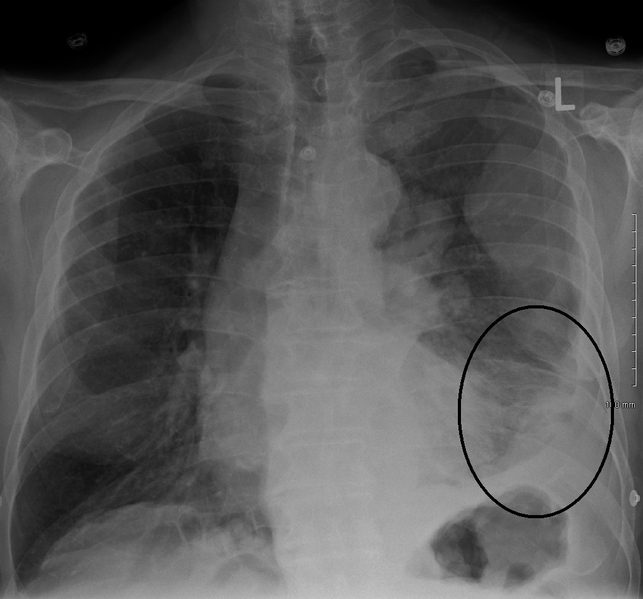Introduction:
Mesothelioma is a form of lung cancer that is almost always caused by asbestos exposure and is most commonly found in the outer lining of the lungs called the mesothelium. The majority of people who develop mesothelioma contract this cancer through breathing in asbestos fibers or being exposed to asbestos dust while on the job.
There are a number of reasons that make diagnosing mesothelioma in its early stages extremely difficult. The symptoms of mesothelioma can have a latency period of anywhere between 20 to 50 years after the initial asbestos contact, which means by the time the symptoms begin to show, the cancer is already within its advanced stages.
The success of treatment for mesothelioma is dependent on the stage in which the cancer is found. Mesothelioma treatments can be very frustrating as the diagnosis is made in advanced stages.
Studies show that when found within either stage I or II, treatment for mesothelioma – usually with a combination of radiation and chemotherapy – is successful in extending the patient’s life for five years at a rate of 74.6%.
Although the Allopathic medical community frowns upon Alternative Medicine for mesothelioma, many patients have found them to be effective in combating symptoms of the disease.
Many of these treatments are what most people would describe as “holistic” in nature. They’ll treat the patient not only physically, but also mentally, emotionally, and spiritually. Others use these alternative therapies as a complement to traditional therapies, hoping to use every resource available to them to achieve as much success as possible in fighting the disease and its troublesome symptoms.
Alternative treatments for mesothelioma include:
Acupuncture – The art of acupuncture has been used for centuries in China to relieve pain. Mesothelioma victims seek acupuncture treatments to decrease the intense pain often caused by the disease so that they may enjoy a better quality of life.
Massage– various forms of massage therapy are used by mesothelioma patients in order to reduce both pain and stress. Many maintain that massage is by far the best way for patients with terminal diseases to enjoy some time of relaxation. Massage works by applying tension, pressure, and motion to the soft tissues of the body, which include tendons, muscles, ligaments, and lymphatic tissue.
Massage therapy may also aid is reducing nausea, which is often a side effect of cancer treatments such as chemotherapy. Patients can seek a specially trained massage therapist for these treatments, which may also be administered by a chiropractor.
Herbs and Nutritional Supplements– Most often used as a complement to traditional therapies, the use of herbs and nutritional supplements have proven helpful to some mesothelioma patients. Though they’re efficacy is not verified by the Food and Drug Administration (FDA), some herbs and supplements claim to boost the immune system while others attest to slowing the progression of cancers such as pleural mesothelioma. Some herbs may reduce the potency of certain chemo drugs.)
Transcutaneous Electrical Nerve Stimulation (TENS) involves the placing of electrodes on the nerve pathway, which then produce an electrical current that is said to stimulate the production of a morphine-like substance in the brain. This substance may serve to reduce pain. Many mesothelioma patients seeking a fairly non-invasive form of palliative treatment have tried TENS therapy, with some success.
Meditation – Proponents of meditation claim that it increases the body’s immune function, but most patients use it to reduce stress and pain, not unlike massage. Meditation has been an important part of many Eastern religions for more than 5,000 years and involves bringing about a healthy state of relaxation for the individual involved in meditating. Mesothelioma patients who meditate are taught how to be aware of the mind and the attitudes that produce stress.
Aromatherapy is a type of therapy that falls under the guise of alternative medicine, typically through the use of different essential oils derived from plants. Though aromatherapy as use of essential oils for treatment purposes has roots in ancient times, aromatherapy as it exists today is a decidedly Western idea.
Hypnotherapy: Both guided and self-hypnosis may be done to ease the pain.
Conclusion:
According to statistics published by the American Cancer Society, the five-year relative survival rate for patients with mesothelioma is approximately 10 percent.
The mesothelioma prognosis for an individual who has been diagnosed with mesothelioma is not good; not so long ago, mesothelioma sufferers were generally told that they could expect to live eight to 18 months beyond the diagnosis. However, with new mesothelioma diagnostics and medical treatments, the lives of many mesothelioma patients have been extended significantly.
Reference:
